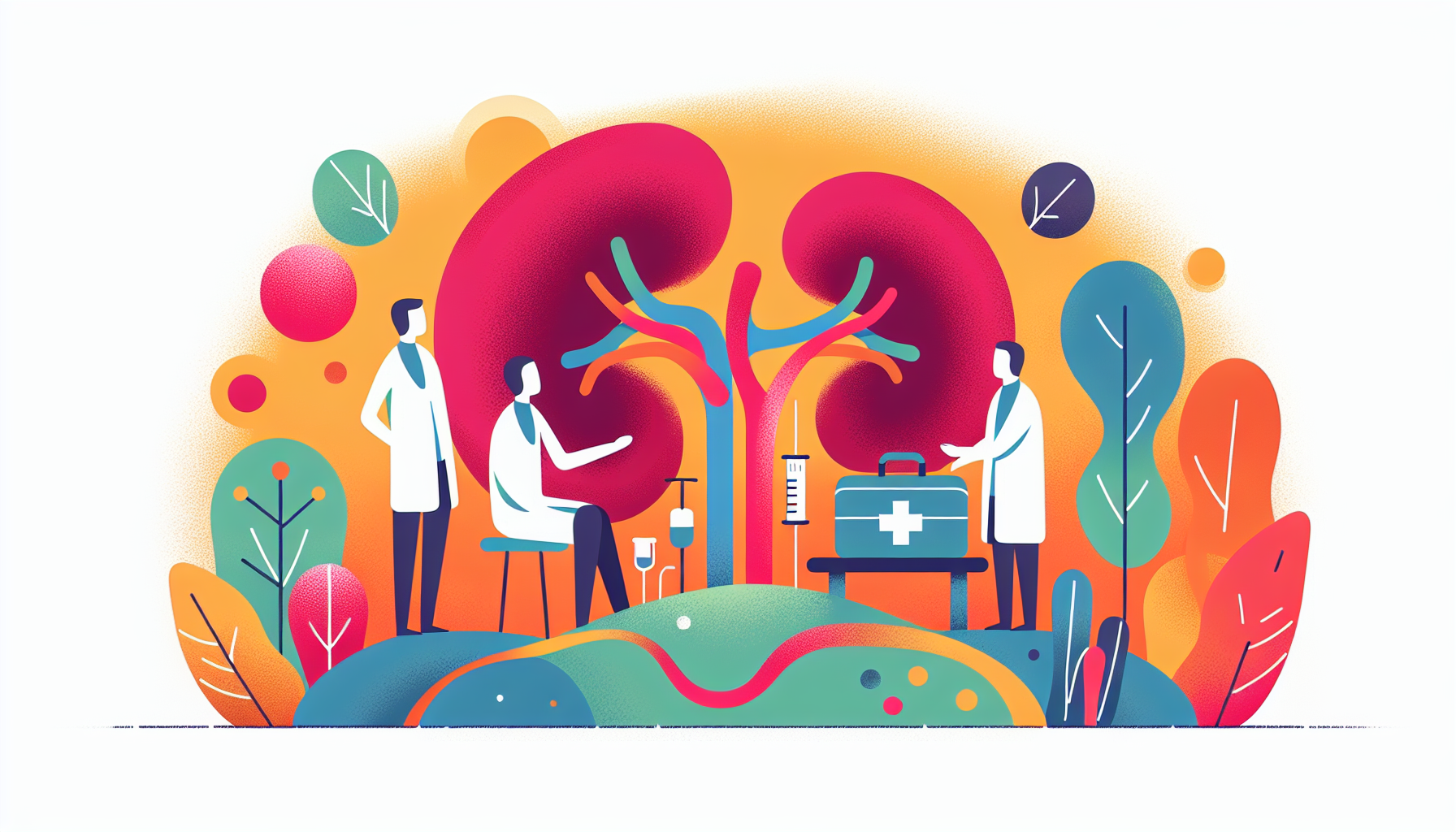Renal cell carcinoma is the most common type of kidney cancer. While it is a serious disease, early detection and treatment can significantly improve the chances of a cure. This article aims to provide you with a comprehensive understanding of renal cell carcinoma, including its symptoms, risk factors, diagnostic process, and available treatment options.
What is Renal Cell Carcinoma?
Renal cell carcinoma is a type of kidney cancer that usually affects people between the ages of 50 and 70. It often starts as a single tumor in one kidney, but in some cases, it may begin as multiple tumors or be found in both kidneys simultaneously.
Symptoms of Renal Cell Carcinoma
In its early stages, renal cell carcinoma may not cause any noticeable symptoms. As the disease progresses, however, you may experience the following warning signs:
A lump on your side, belly, or lower back
Blood in your urine
Low back pain on one side
Unexplained weight loss
Loss of appetite
Fever
Fatigue
Anemia (low red blood cell count) or Polycythemia
Night sweats
High blood calcium levels
High blood pressure
Liver dysfunction (Stauffer's syndrome)
Risk Factors for Renal Cell Carcinoma
While the exact cause of renal cell carcinoma is unknown, several factors can increase your risk of developing the disease:
Smoking
Obesity
Long-term use of pain medications like aspirin, ibuprofen, or acetaminophen
Hepatitis C infection
Exposure to certain chemicals, such as dyes, asbestos, cadmium, herbicides, and solvents
Acquired cystic kidney disease (especially in dialysis patients)
Inherited conditions, particularly von Hippel-Lindau disease
Hypertension
Family History (Von Hippel-Landau disease, Birt-Hogg-Dube syndrome, Hereditary leiomyomatosis, Hereditary papillary renal cell cancer)
Diagnosing Renal Cell Carcinoma
To diagnose renal cell carcinoma, your doctor will start by conducting a physical exam and asking about your symptoms and family history. They may then order various tests, including:
If the results confirm the presence of renal cell carcinoma, your doctor will determine the stage of the cancer to help guide treatment decisions. Additional imaging tests, such as chest X-rays, CT scans, MRIs, and bone scans, may be performed to assess the extent of the disease.
Treatment Options for Renal Cell Carcinoma
Treatment for renal cell carcinoma depends on the stage of the cancer, your overall health, and potential side effects. Options may include:
Surgery to remove part or all of the affected kidney
Biologic drugs that boost your body's immune response against cancer cells
Immunotherapy drugs like interferon-alfa or interleukin-2
Targeted therapy, which attacks specific aspects of cancer cells, such as their blood supply or certain proteins
Ablation, which uses extreme cold or radio waves to destroy tumors
While radiation and chemotherapy are not typically effective for renal cell carcinoma, they may be prescribed in some cases to alleviate symptoms or when other treatments have failed.
Clinical trials are also ongoing to explore new treatment options for renal cell carcinoma. Your doctor can help you determine if participating in a clinical trial is a suitable option for you.
Coping with Renal Cell Carcinoma
In addition to medical treatment, there are several things you can do to support your physical and emotional well-being during your battle with renal cell carcinoma:
Eat a balanced, nutritious diet to maintain your strength during treatment
Stay physically active, balancing exercise with rest as needed
Adhere to your treatment plan and keep your doctor informed of any changes in your symptoms
Seek emotional support from counselors, support groups, family, and friends
Remember, the earlier renal cell carcinoma is detected and treated, the better the outcome. If you experience any symptoms or have concerns about your risk factors, don't hesitate to consult your healthcare provider.
For more information and support, visit the American Cancer Society's website on kidney cancer, the National Kidney Foundation's kidney cancer resources, or the National Cancer Institute's kidney cancer information page.



